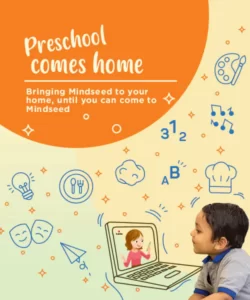Joy is our school leader at Vishwajyot International School (Phaltan). And in this school, we have a mix of students – some who’ve been with us from their younger years, to others who’ve studied in Marathi medium schools and just joined us. This makes for interesting classrooms, where a diverse set of children, with diverse skills, abilities and interests all need to be catered to. Also, in the higher grades like the 5th Std, the children are slowly being inducted into the mainstream school system, so they all need to know some of the key basics in terms of information, and need to have developed the basic skills sets as well. Especially important are skills such as perseverance, creativity and problem-solving, all of which will form the basis for their preparations for high school.
Joy says, “This mix of backgrounds makes it challenging to draw out each child to their full potential, or so I thought! Until my own class proved me wrong”
Here is Joy’s story.
“I was conducting poetry recitation with the 5th Std class, but also wanted to build their critical thinking and communicating skills. So while children recited poems one at a time, the other children would assign scores to them. I would also ask a few of the children to give feedback to the speaker and to defend the scores they awarded.
Sagar was one such speaker. Objectively, his performance was poor. He fumbled many times and struggled to remember, but kept trying till he completed. I scored him 2 out of 4. But when I looked around and asked my students about their scoring I was surprised to see perfect/near perfect scores awarded to him. I was now curious. I asked Ayush “Why have you awarded 4/4 to Sagar”, I said. “Teacher, Sagar is from Marathi medium but yet he stood in front of the class confidently”. ” Hmm …But he made quite a few mistakes, how can you give him full marks?” Ayush replied, “I know but look at his confidence, although he didn’t recite correctly but he did not leave the stage in middle. He looked at our eyes and faced us. It’s true he couldn’t remember the whole poem this time, but we will help him learn next time”.
I wanted to hug him, but I had a class to conduct so I moved on to Rajdeep. Rajdeep himself was awarded 2 out of 4 earlier but had scored Sagar at 3.5 ” Why 3.5?”. He replied, “I wanted to give 4 but cut .5 so that he doesn’t become over confident next time.”
What a humbling moment for a teacher in the classroom! Joy’s students proved that context and effort are both factors to be considered while assessing a performance, something our system does not take into account when assessing students. Subjectivity is completely discouraged in our assessments eco-system today, a relic of the factory-type education system where the quality of teaching staff is highly variable. In today’s world however, the need of the hour is to besubjective – and systemically allow for differences in context.
Joy ends her story with an appeal to all educators.
“Instead of hiding behind objectivity let us consider the context in which performances are being measured. Let us try to move our assessments from being judgmental to being informative – systemically. Let us value effort and perseverance instead of pure performance, and then perhaps we can encourage kids to keep fighting for their dreams. If we let our kids lead perhaps they will build the school they deserve”

